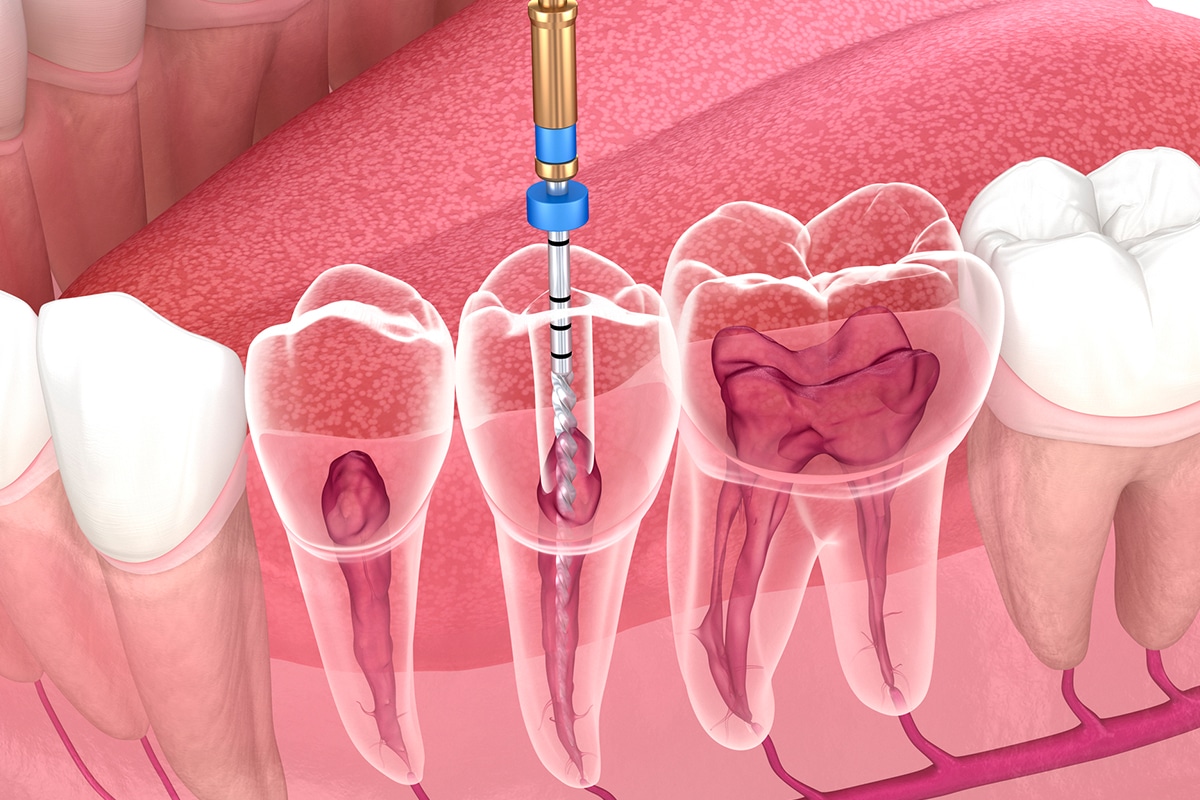Saving your natural teeth in simple terms; endodontic care refers to the treatments and procedures that dentists use to rescue a tooth if it becomes infected or injured. Endodontics primarily involves addressing the tissues within your teeth that encompass the root, with root canal therapy being the most common procedure. However, rest assured that undergoing a root canal is not as painful as popular culture might suggest; in fact, root canals are intended to alleviate pain, not cause it!

When tooth decay is detected early, a general dentist can easily treat it with a simple filling procedure. If the decay goes untreated and progresses beyond the outer layers of the tooth, reaching the soft tissue surrounding the nerves, endodontic treatment becomes necessary for the best chance of saving the tooth. If the decay advances further, it can lead to the formation of an abscess at the root of the tooth, exposing the infection and allowing it to spread to other parts of the body. In severe cases, the only option may be tooth extraction and replacement with a prosthetic.
Of course, preserving your natural tooth is always the preferred option. Although prosthetic teeth have improved significantly over the years, they will never replicate the look, feel, or function of your natural teeth. Additionally, prosthetic solutions are often more expensive than endodontic procedures and frequently require multiple dental visits to complete.
Decay that has extended to a tooth's roots may manifest with noticeable symptoms. Patients requiring a root canal may experience pain, increased sensitivity to hot or cold temperatures, or swelling and discoloration of the affected tooth. Some patients may exhibit no symptoms at all. Most dentists identify the need for endodontic treatment through digital imaging and examinations during a patient's regular hygiene appointment.
While general dentists are trained in basic endodontics and can perform routine root canals, they typically refer patients with more complex cases to specialists known as endodontists.
Endodontists undergo at least two additional years of training and employ advanced technology and procedures to effectively preserve your natural teeth and keep you smiling. They use their expertise and advanced tools to carry out both routine and challenging cases with increased confidence and a higher success rate.
A successful root canal treatment involves thorough removal of the infected tissue from all of the tooth's root canals, preventing further spread of the decay. As tooth shapes can vary, root canal therapy can be more challenging to perform without the specialized training and technology of an endodontist, particularly in cases where the root canals are complex or slender.
Root canals have a reputation for being painful, but endodontists are committed to changing that perception. They are well-versed in anesthetics to ensure that patients are as comfortable as possible during the procedure. Thanks to their specialized training, they are also skilled at diagnosing mouth and facial pain that may pose challenges for other medical or dental professionals.
We are pleased to offer endodontic care in our office. Please contact us to discuss the services we provide and how we can assist with your endodontic needs.